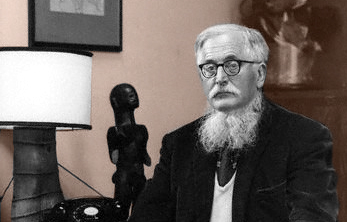'Hours before dawn we were woken by the quake'
Earthquakes have always been metaphors for human crises and catastrophes. Donald Trump's win in last week's American election was likened to a quake, and the protest marches and riots it prompted in a dozen cities were characterised as aftershocks. Brexit was an earlier quake.
This morning a real earthquake rolled through New Zealand, splitting newly cemented foundations in the long-suffering city of Christchurch, blocking roads and collapsing homes in the coastal town of Kaikoura, and closing Wellington's business and political districts as efficiently as any terrorist attack.
It is hard not to think about today's earthquake as a sort of corollary of recent political upheavals. In his great poem 'Barbarossa', Hubert Witheford tied the earthquake that destroyed Napier in 1931 to the chaos and conflicts of the Great Depression. In a poem called 'Aubade' written a couple of years later, William Empson described being woken by an earthquake in Japan, and then linked the disaster to the 'pains' of his native Europe, where fascism was spreading and armies were training for a new world war.
In a marvellous blog post from 2011, John Mark Greville visits the Chinese town where Empson defied the Japanese invaders by teaching English literature at the end of the 1930s, and then explicates Empson's poem about the earthquake he suffered in Japan years earlier:
Empson and his Japanese lover are woken by an earthquake, and she says she must go back to the house where she is employed as a nanny, as the child might also have been woken up. This raises for Empson the issue as to whether or not his relationship can survive: the earthquake becomes a symbol of the coming war between Britain and Japan, a war that would make his marriage to a Japanese citizen difficult or even dangerous...
Here's Empson's poem.
Aubade
Hours before dawn we were woken by the quake.
My house was on a cliff. The thing could take
Bookloads off shelves, break bottles in a row.
Then the long pause and then the bigger shake.
It seemed the best thing to be up and go.
And far too large for my feet to step by.
I hoped that various buildings were brought low.
The heart of standing is you cannot fly.
My house was on a cliff. The thing could take
Bookloads off shelves, break bottles in a row.
Then the long pause and then the bigger shake.
It seemed the best thing to be up and go.
And far too large for my feet to step by.
I hoped that various buildings were brought low.
The heart of standing is you cannot fly.
It seemed quite safe till she got up and dressed.
The guarded tourist makes the guide the test.
Then I said The Garden? Laughing she said No.
Taxi for her and for me healthy rest.
It seemed the best thing to be up and go.
The guarded tourist makes the guide the test.
Then I said The Garden? Laughing she said No.
Taxi for her and for me healthy rest.
It seemed the best thing to be up and go.
The language problem but you have to try.
Some solid ground for lying could she show?
The heart of standing is you cannot fly.
Some solid ground for lying could she show?
The heart of standing is you cannot fly.
None of these deaths were her point at all.
The thing was that being woken he would bawl
And finding her not in earshot he would know.
I tried saying Half an Hour to pay this call.
It seemed the best thing to be up and go.
The thing was that being woken he would bawl
And finding her not in earshot he would know.
I tried saying Half an Hour to pay this call.
It seemed the best thing to be up and go.
I slept, and blank as that I would yet lie.
Till you have seen what a threat holds below,
The heart of standing is you cannot fly.
Till you have seen what a threat holds below,
The heart of standing is you cannot fly.
Tell me again about Europe and her pains,
Who’s tortured by the drought, who by the rains.
Glut me with floods where only the swine can row
Who cuts his throat and let him count his gains.
It seemed the best thing to be up and go.
Who’s tortured by the drought, who by the rains.
Glut me with floods where only the swine can row
Who cuts his throat and let him count his gains.
It seemed the best thing to be up and go.
A bedshift flight to a Far Eastern sky.
Only the same war on a stronger toe.
The heart of standing is you cannot fly.
Only the same war on a stronger toe.
The heart of standing is you cannot fly.
Tell me more quickly what I lost by this,
Or tell me with less drama what they miss
Who call no die for a god for a throw,
Who says after two aliens had one kiss
It seemed the best thing to be up and go.
Or tell me with less drama what they miss
Who call no die for a god for a throw,
Who says after two aliens had one kiss
It seemed the best thing to be up and go.
But as to risings, I can tell you why.
It is on contradiction that they grow.
It seemed the best thing to be up and go.
It is on contradiction that they grow.
It seemed the best thing to be up and go.
Up was the heartening and the strong reply.
The heart of standing is we cannot fly.



0 Comments:
Post a Comment
<< Home